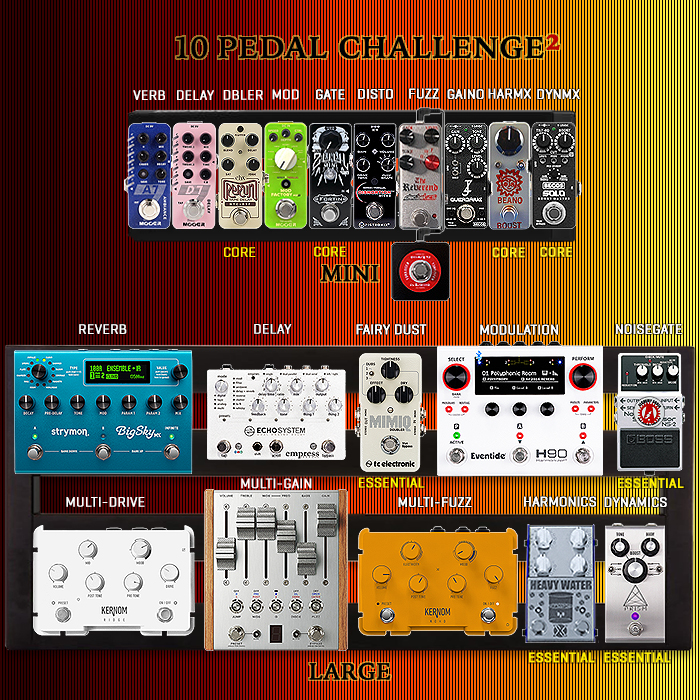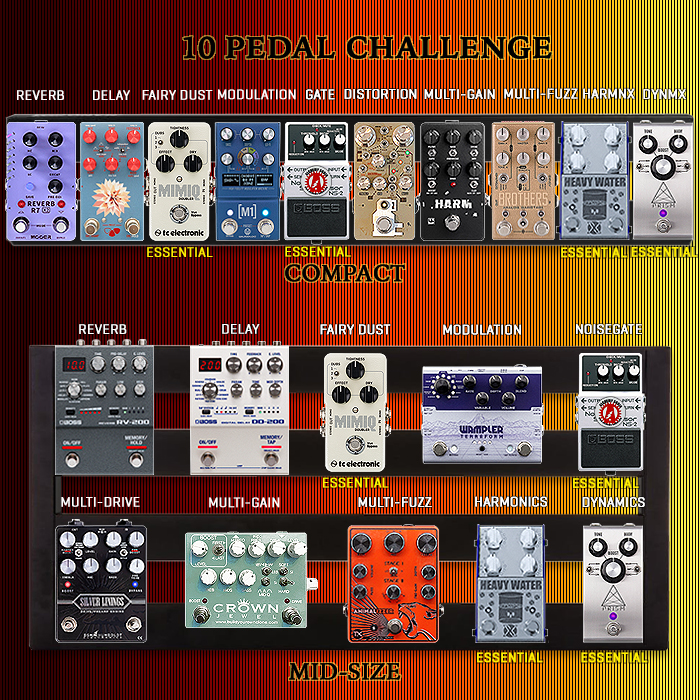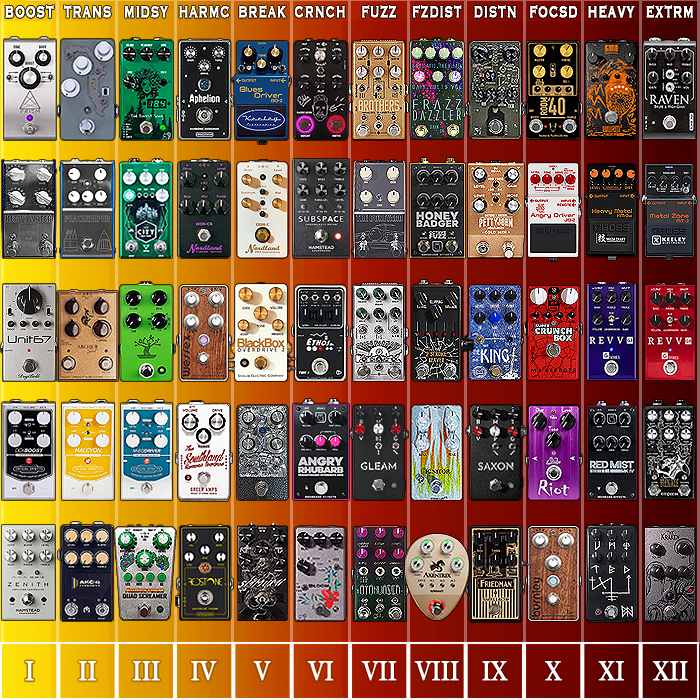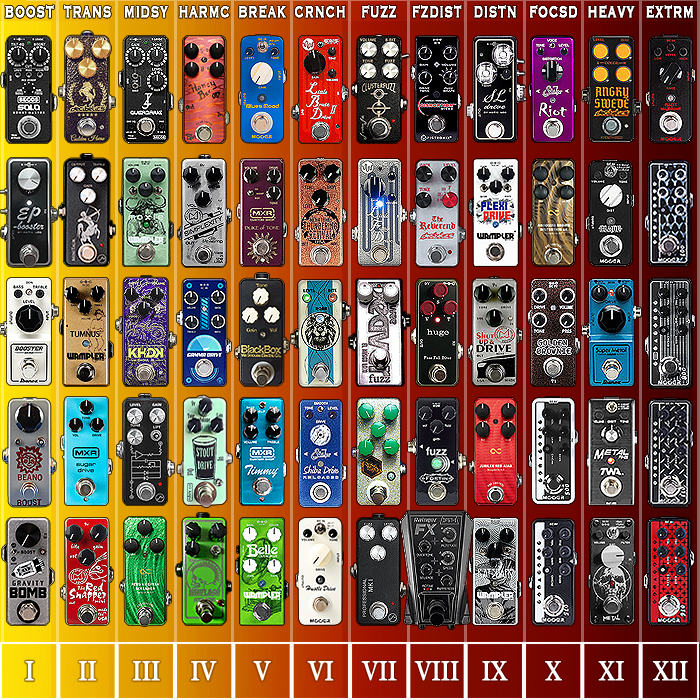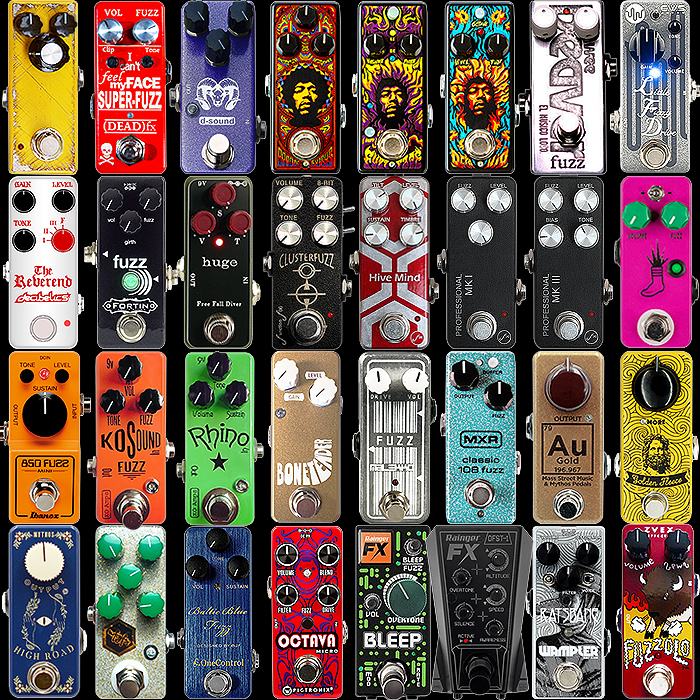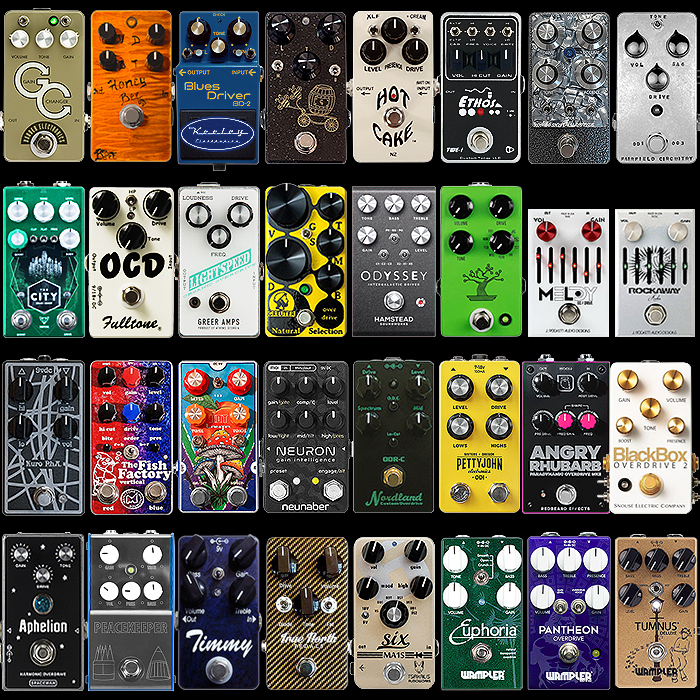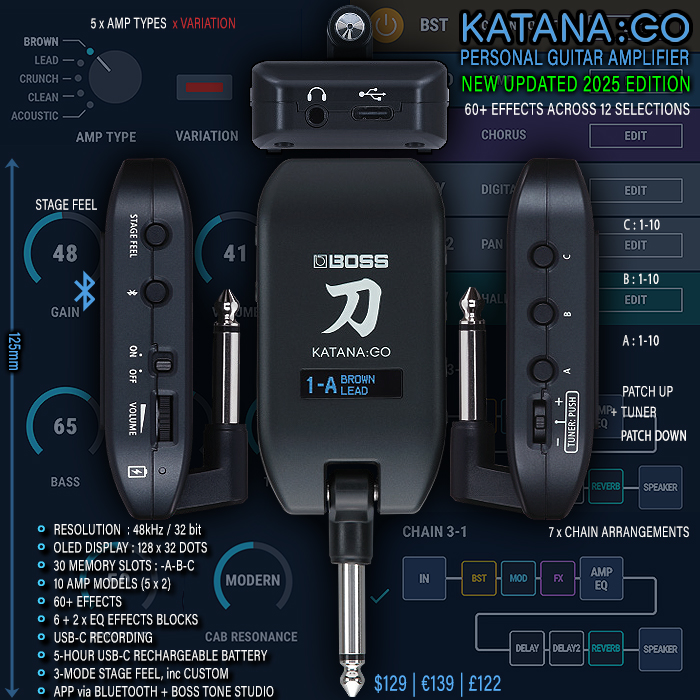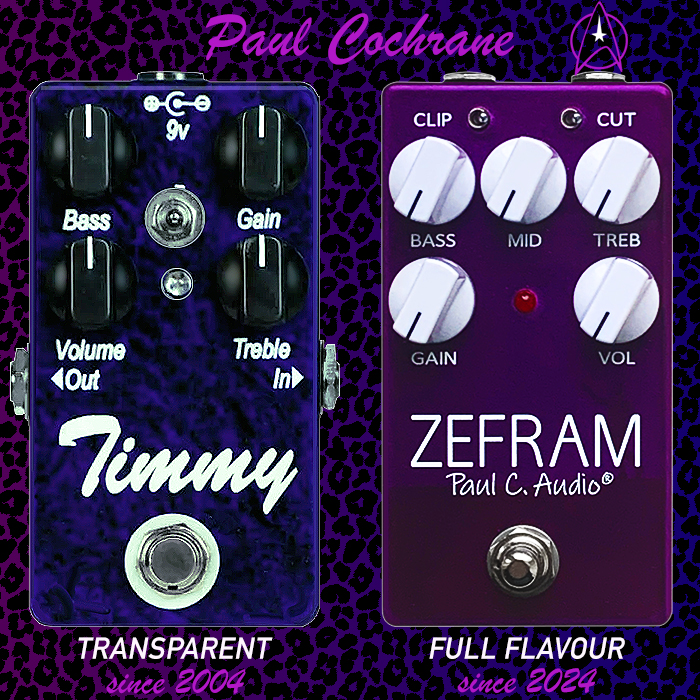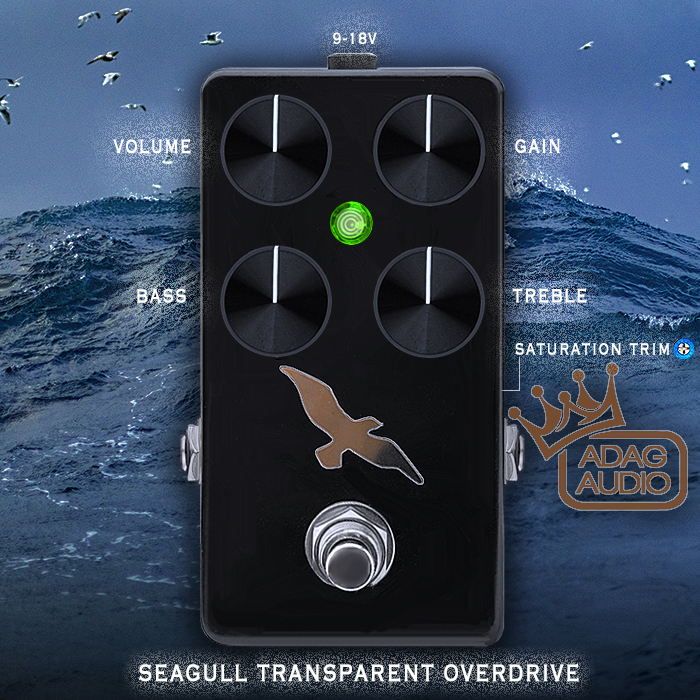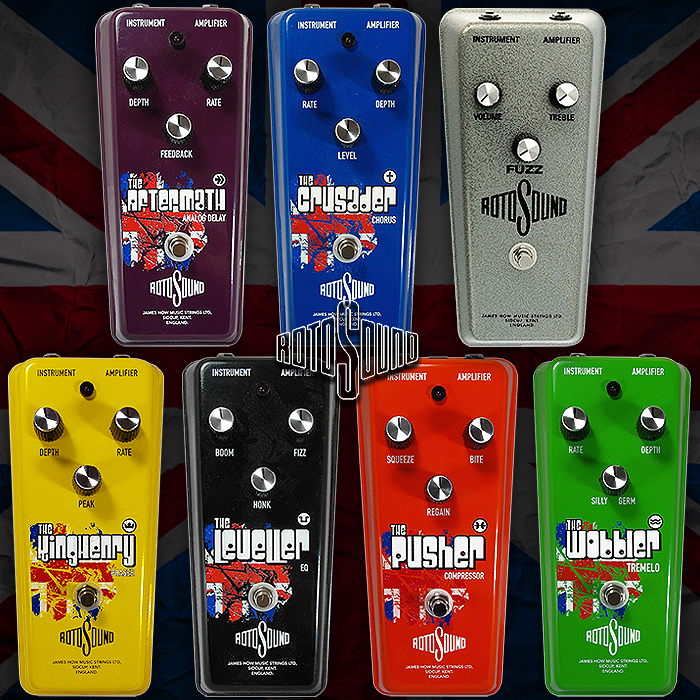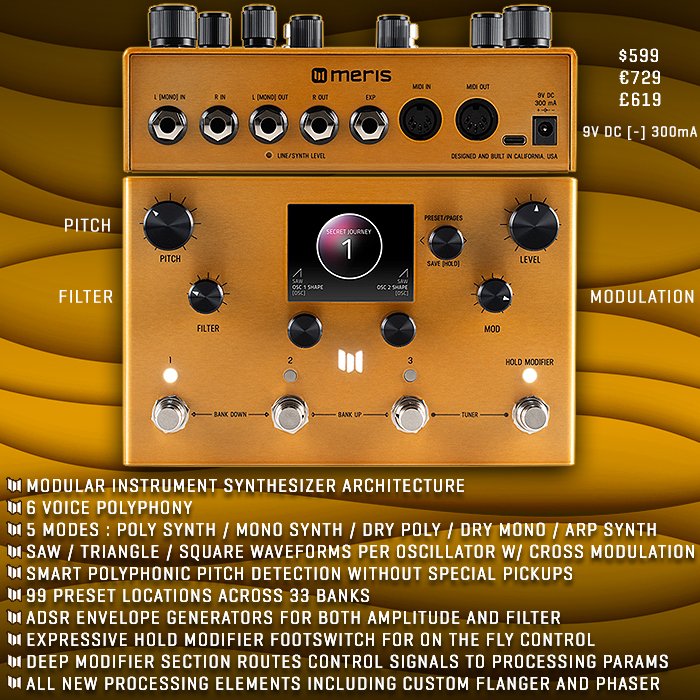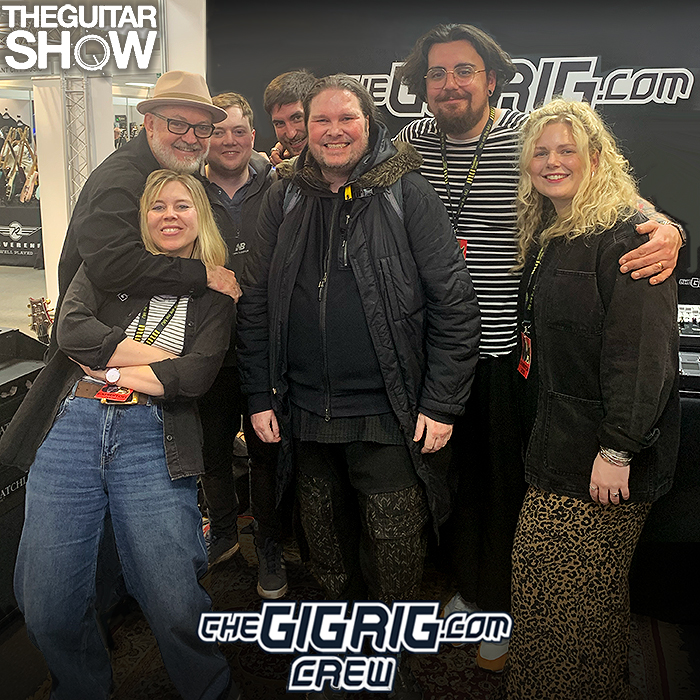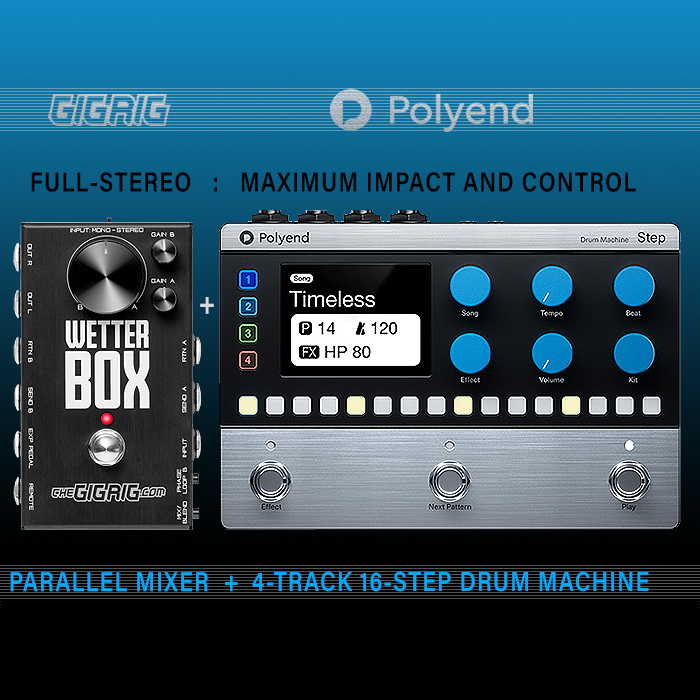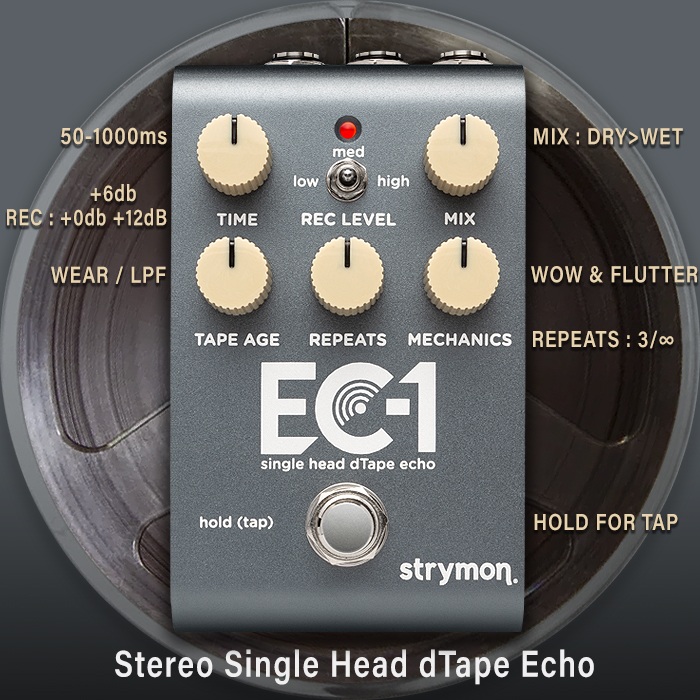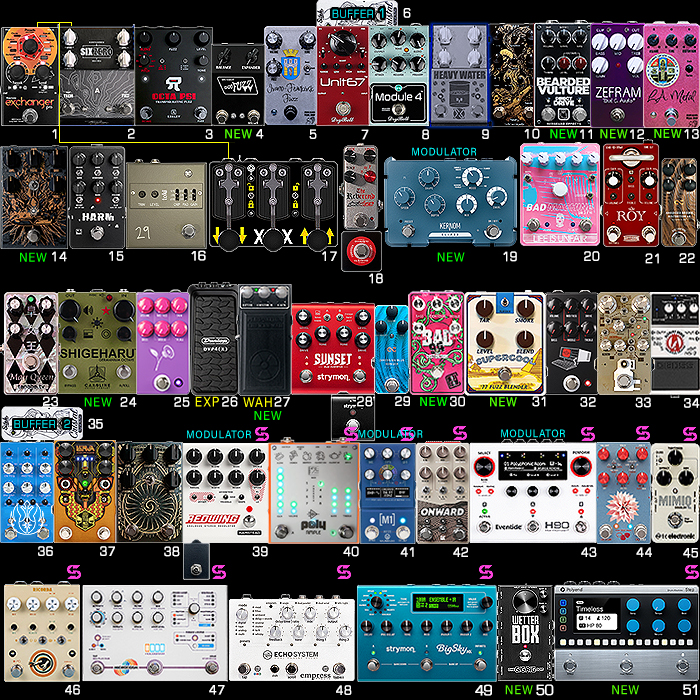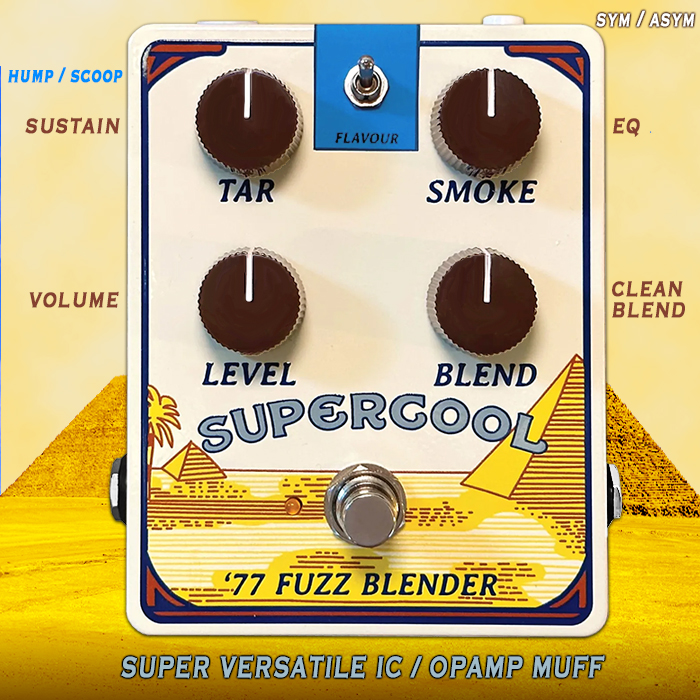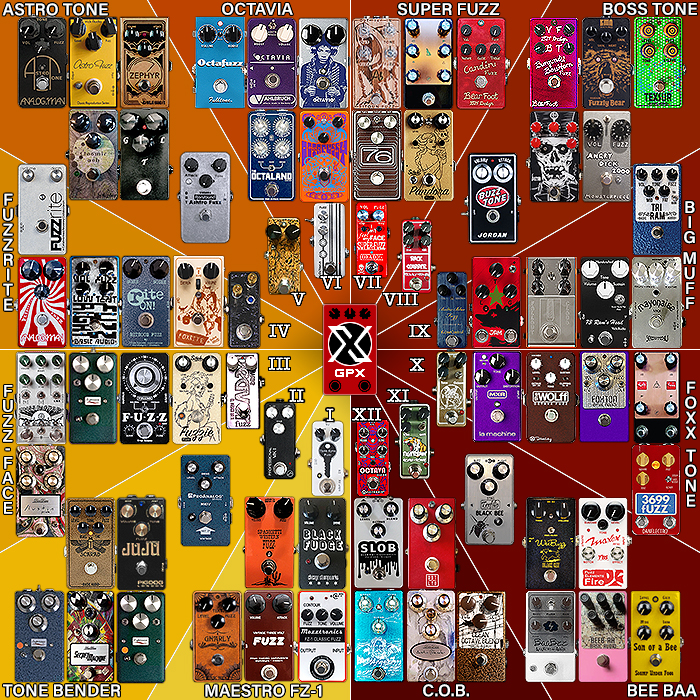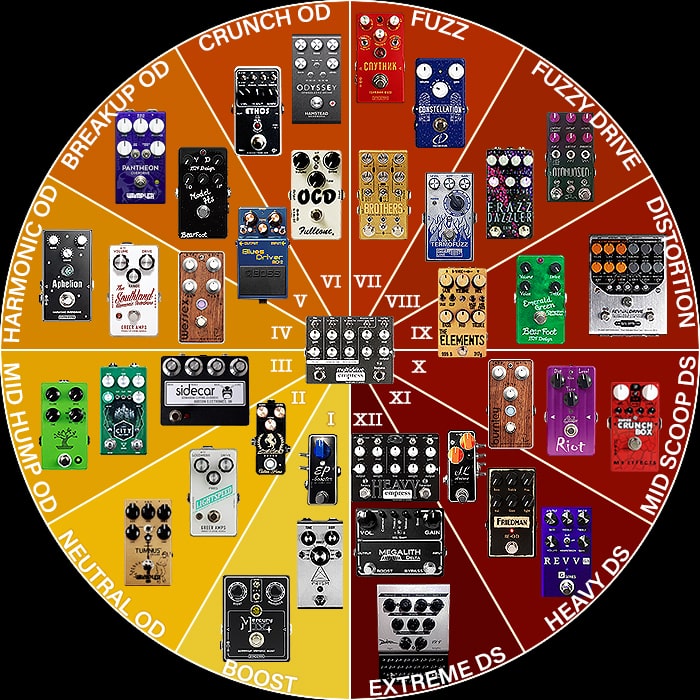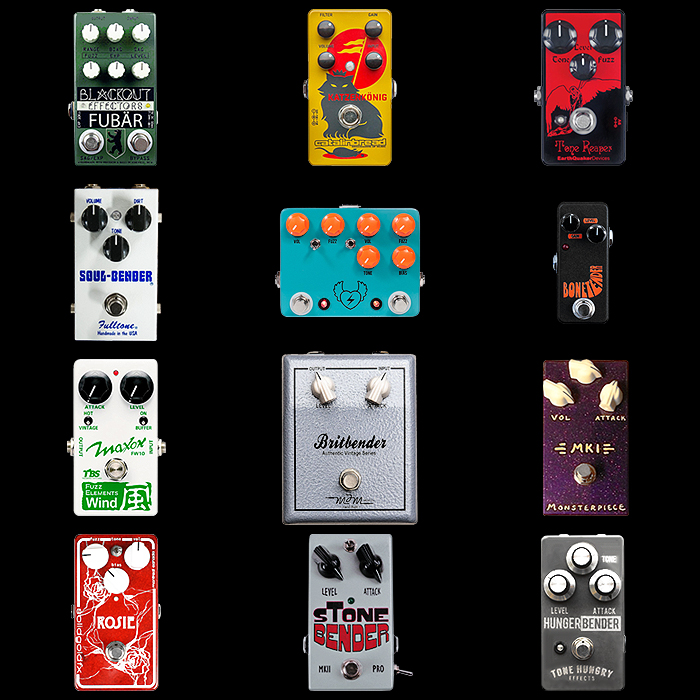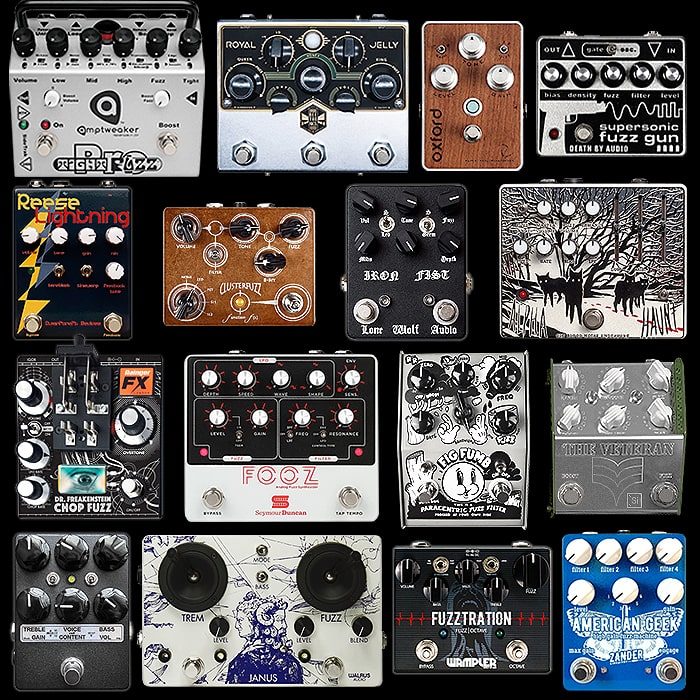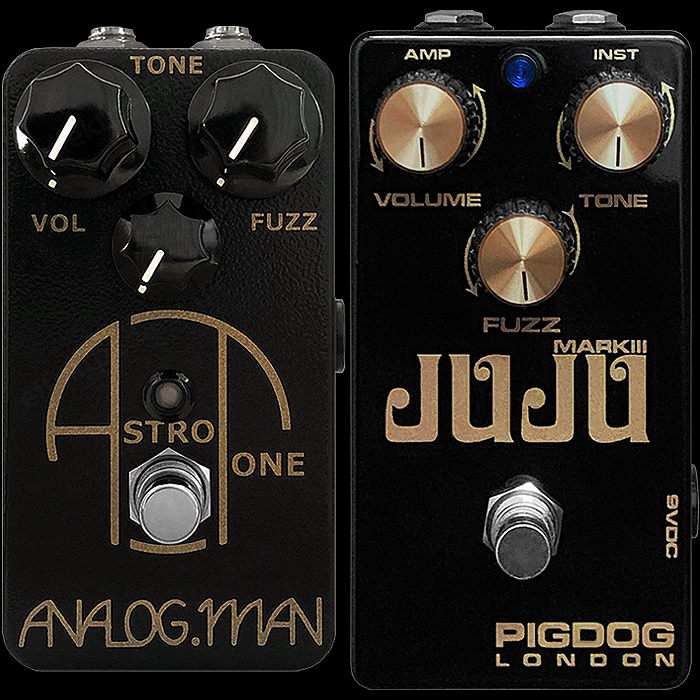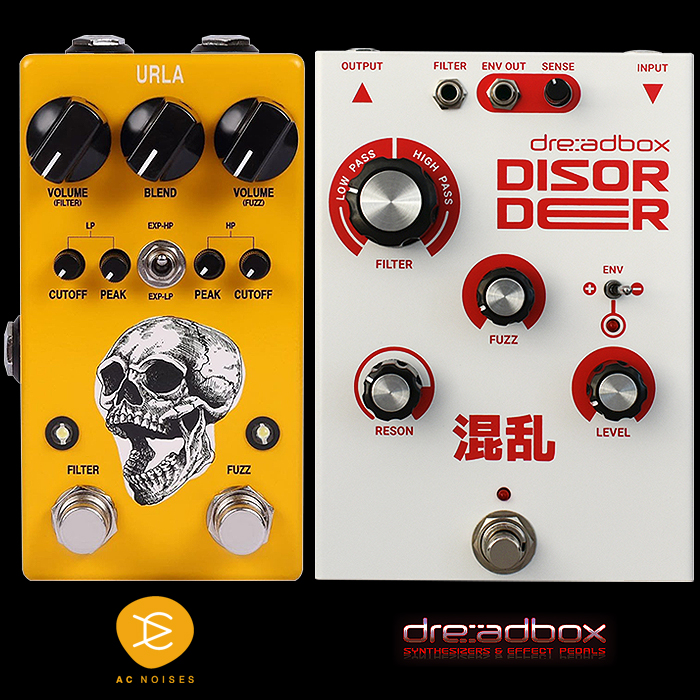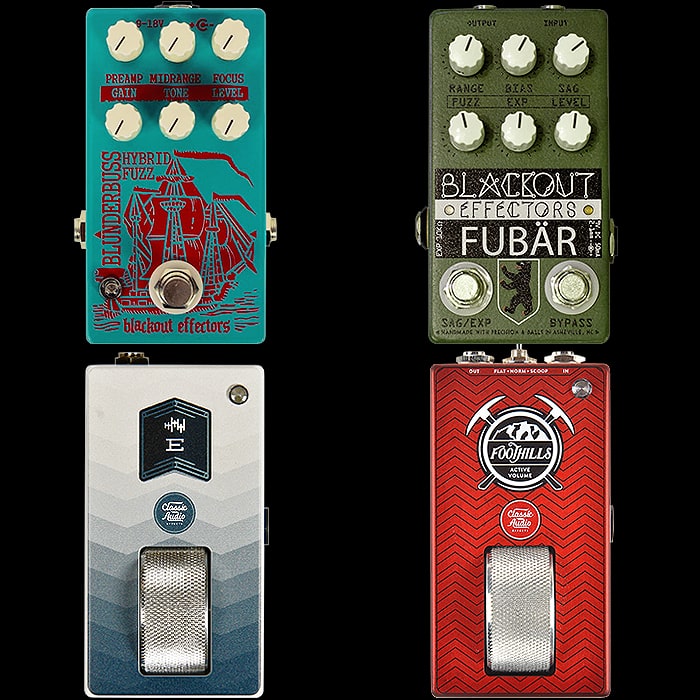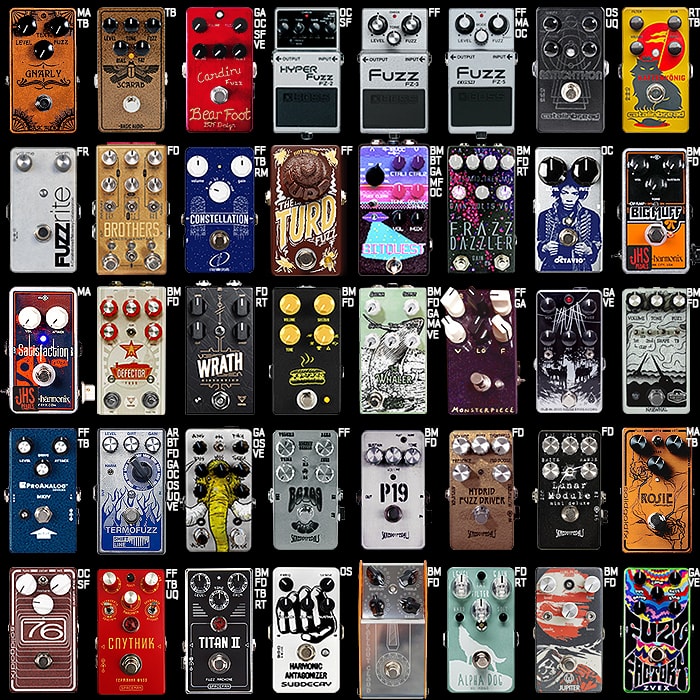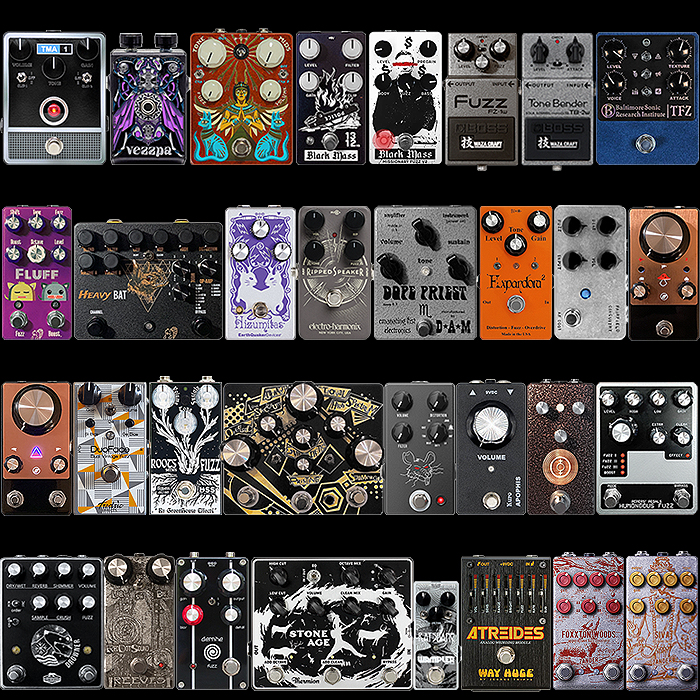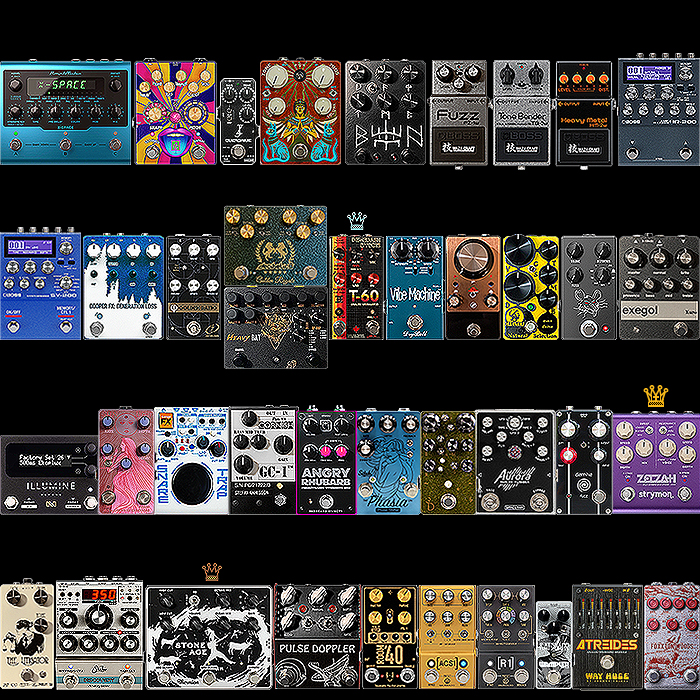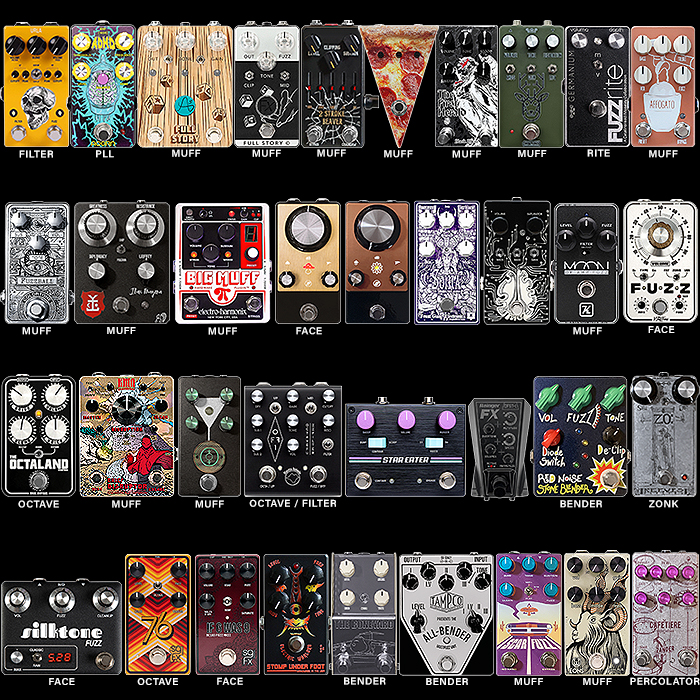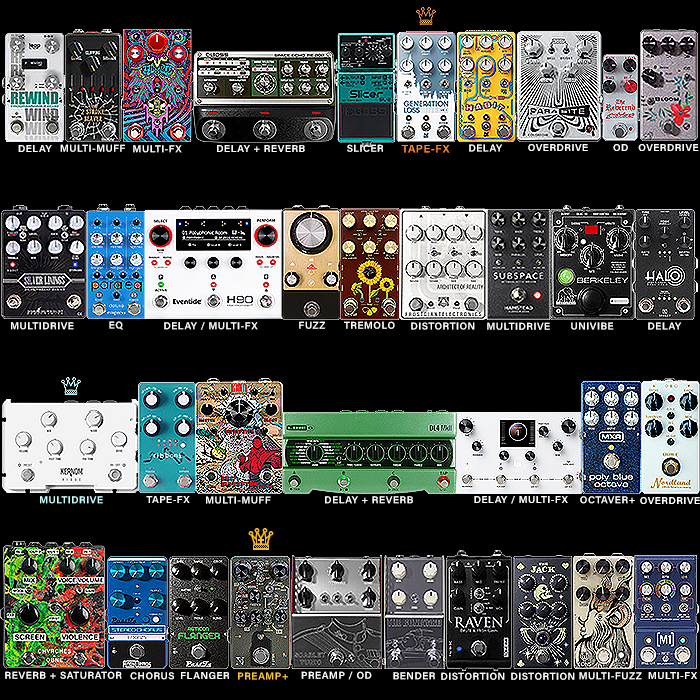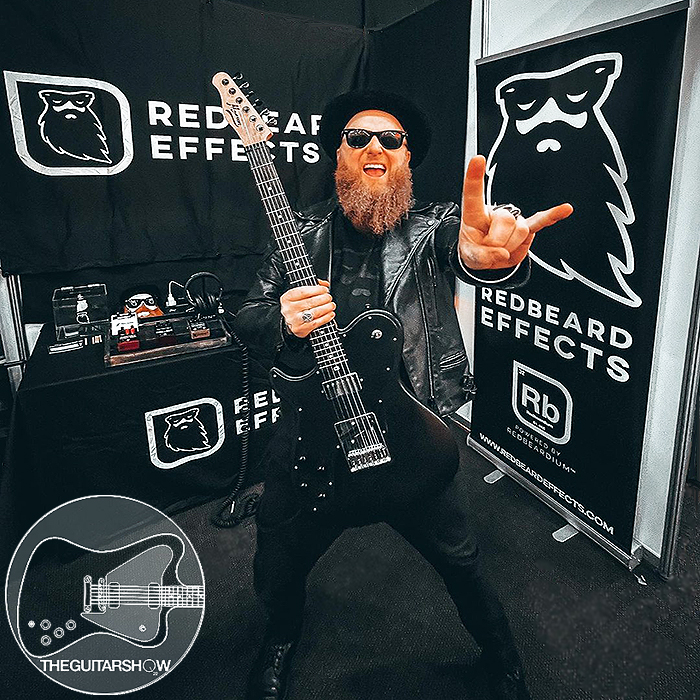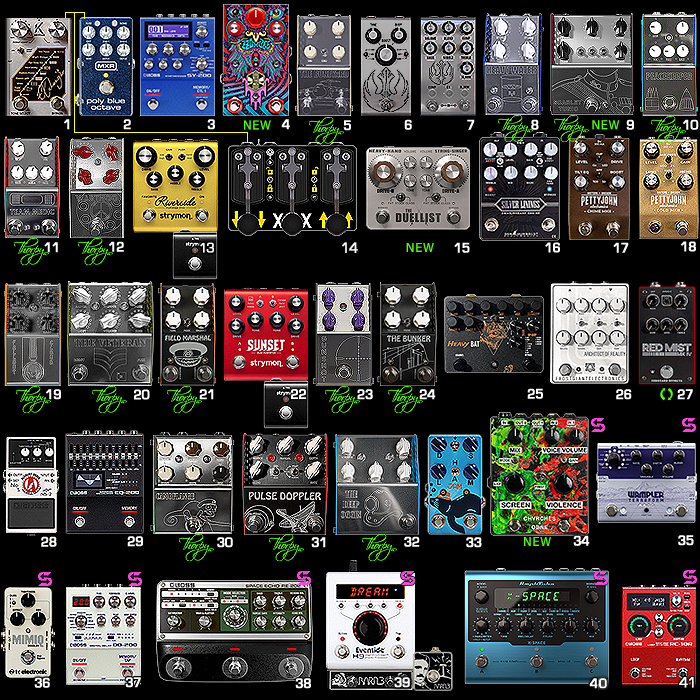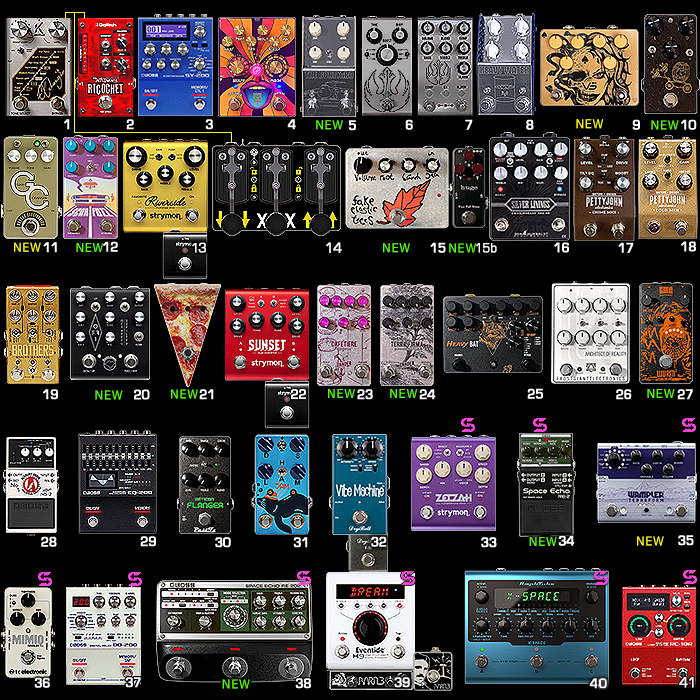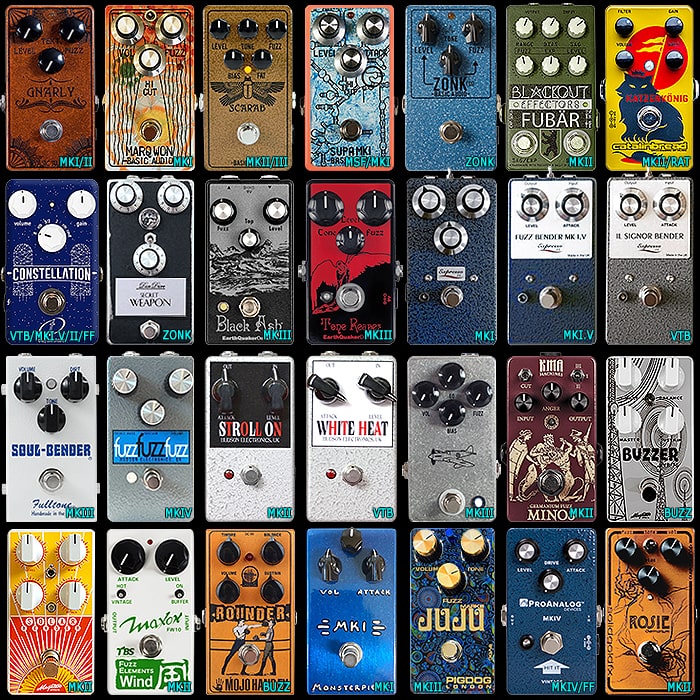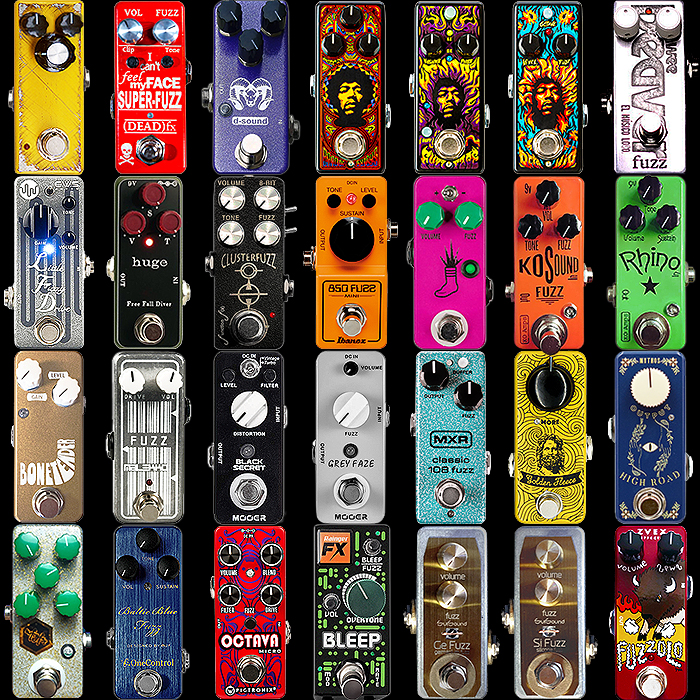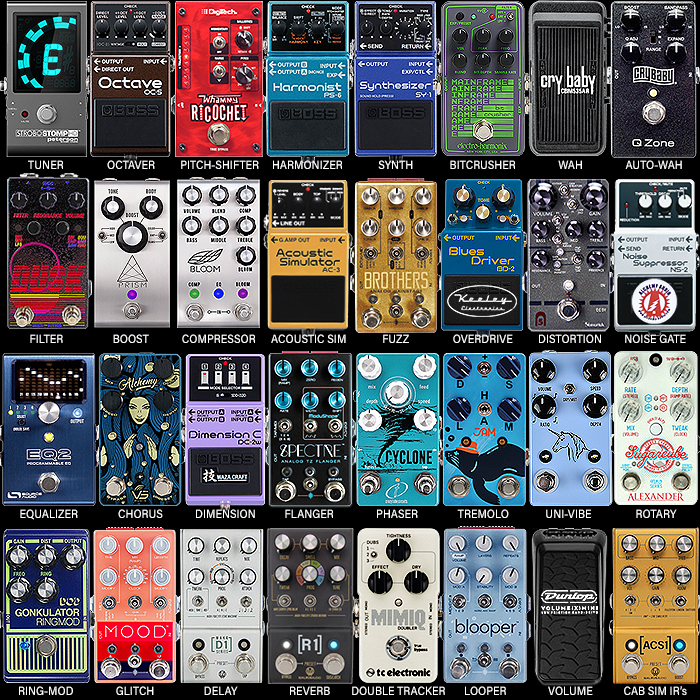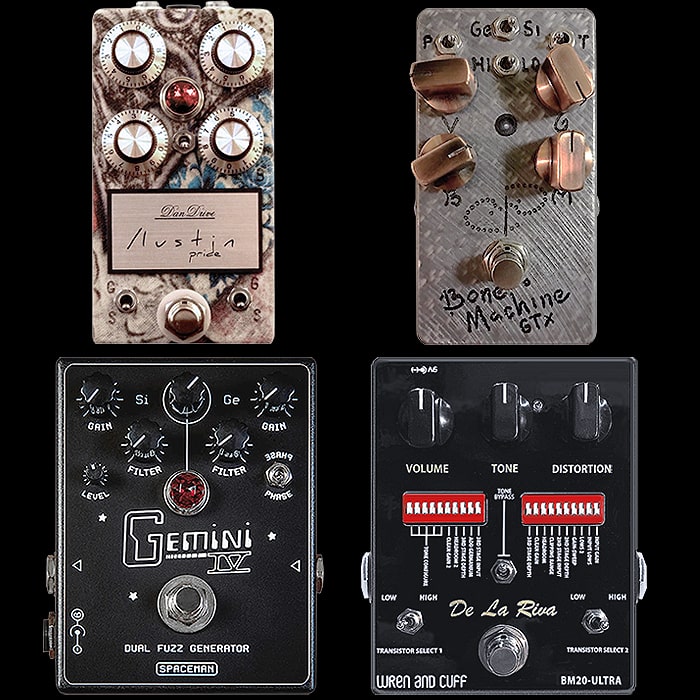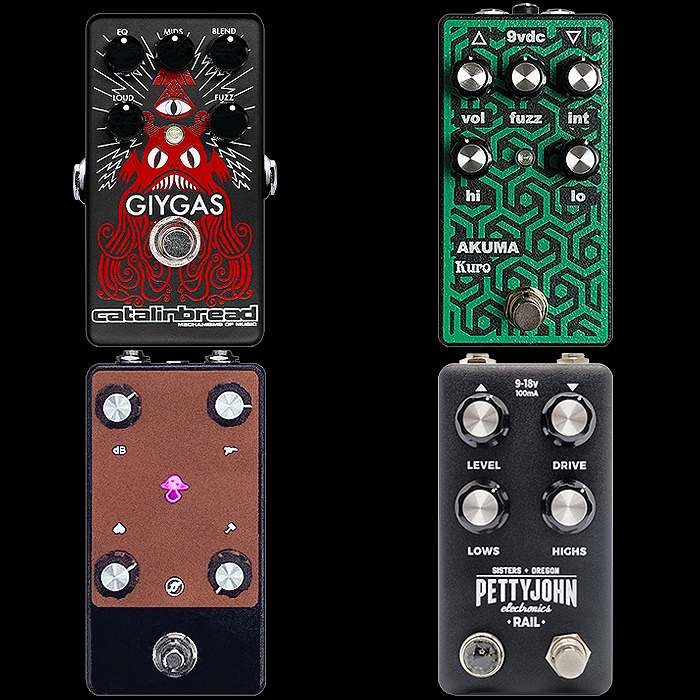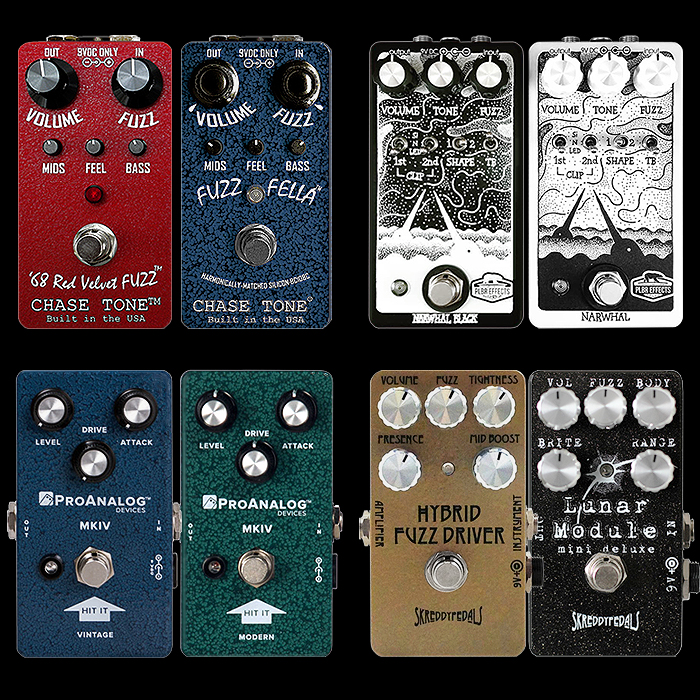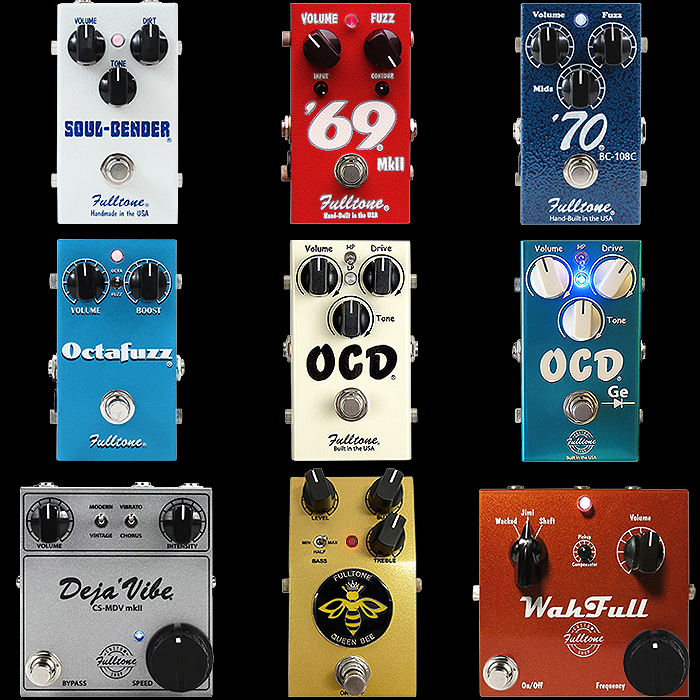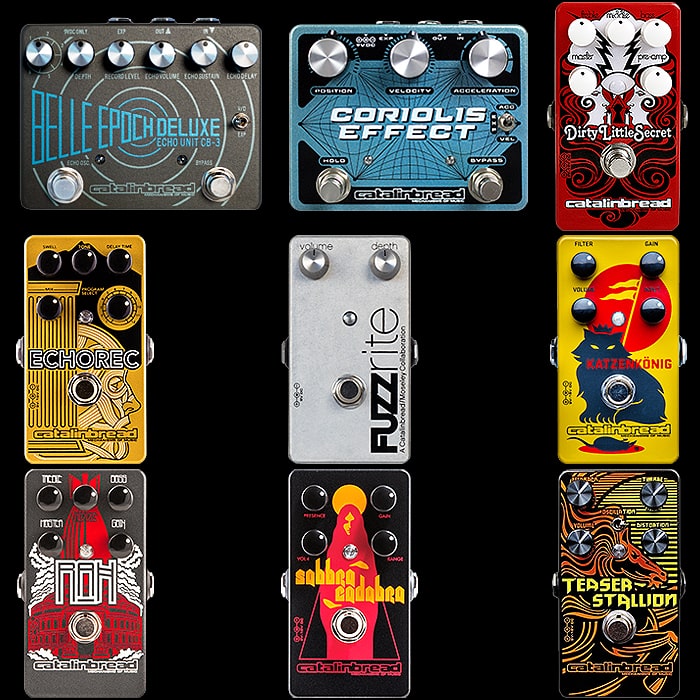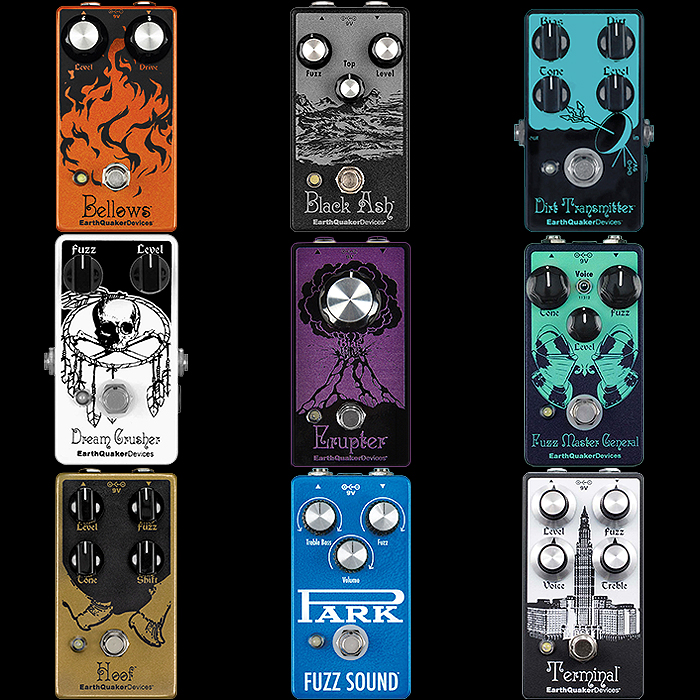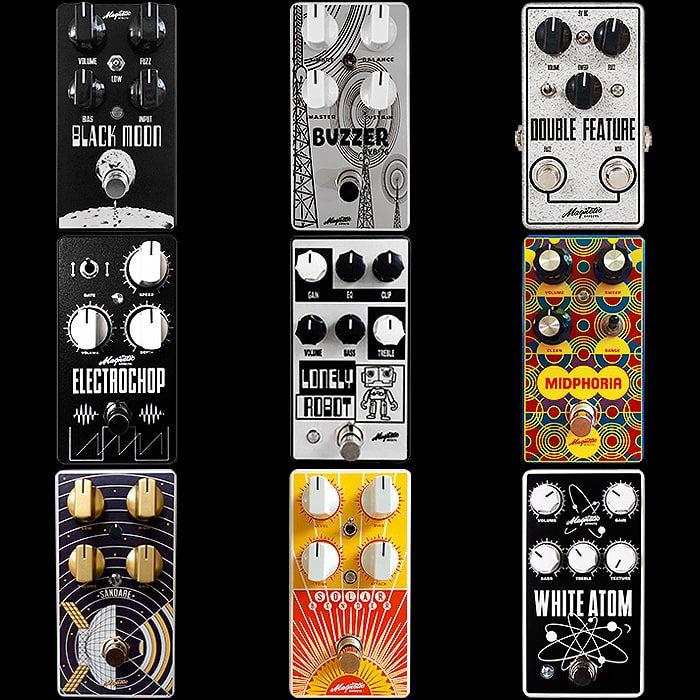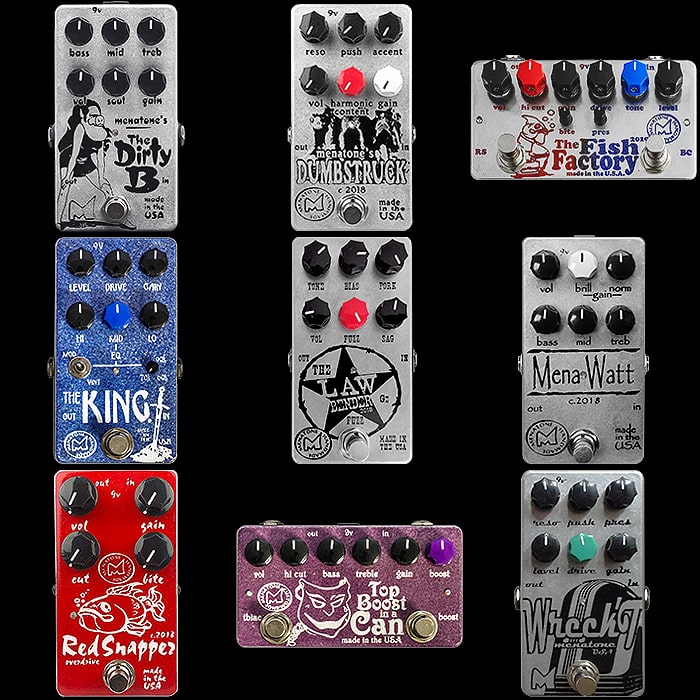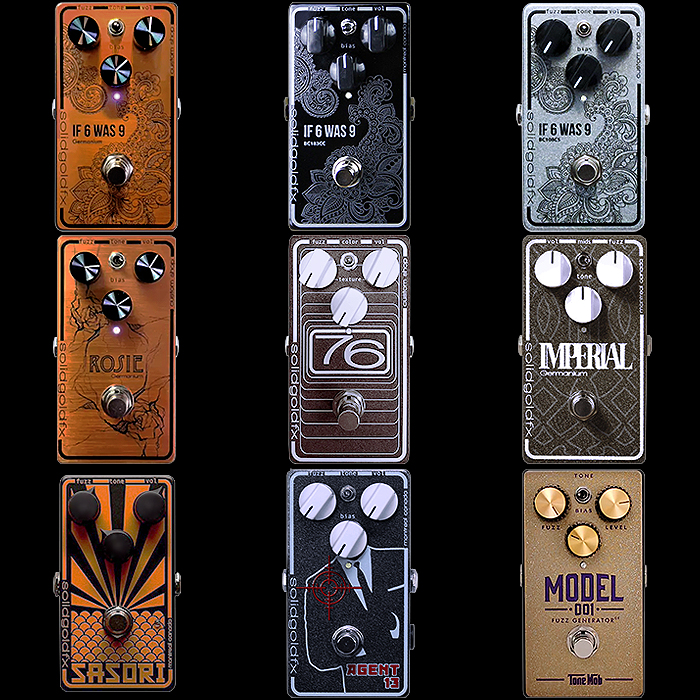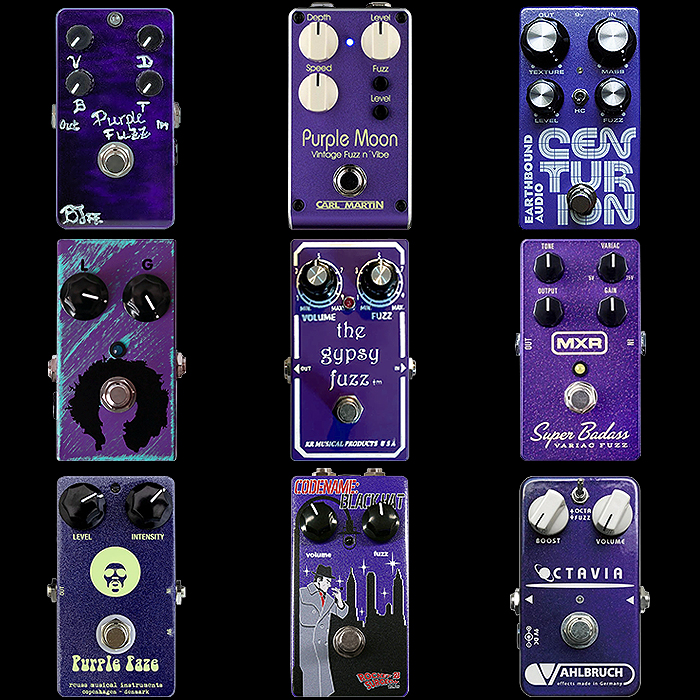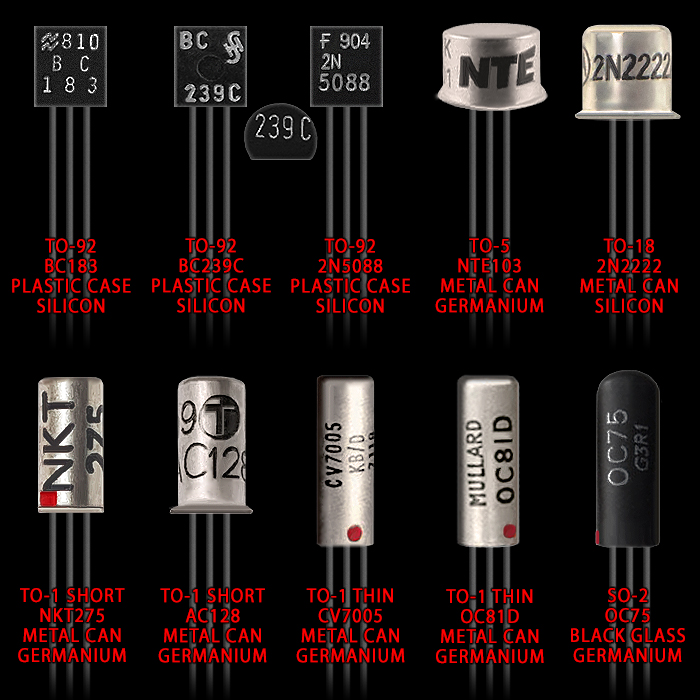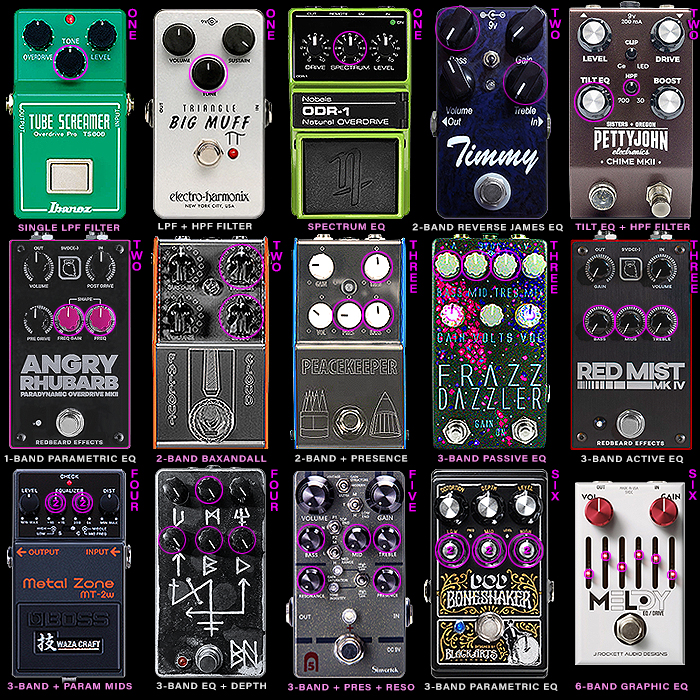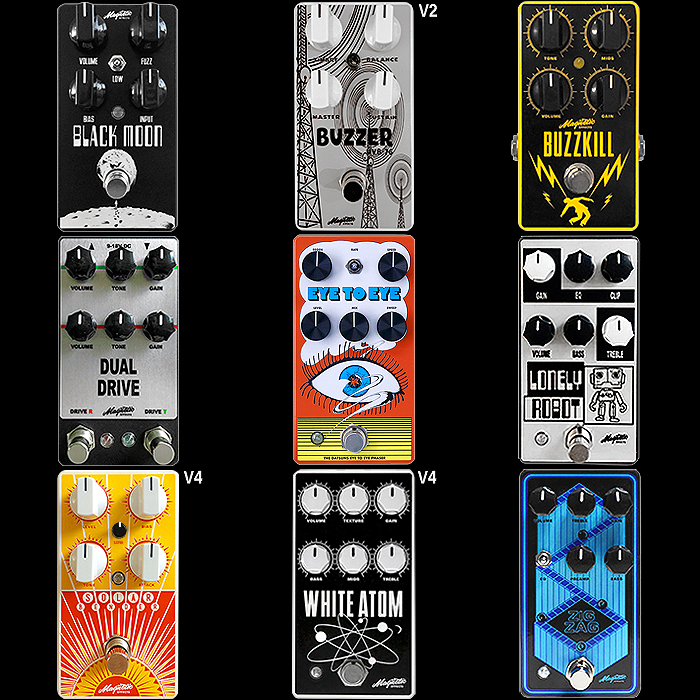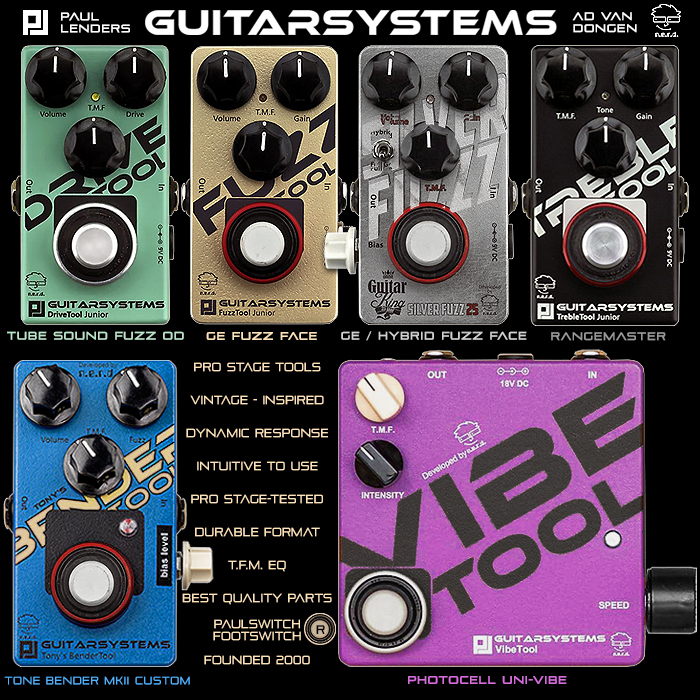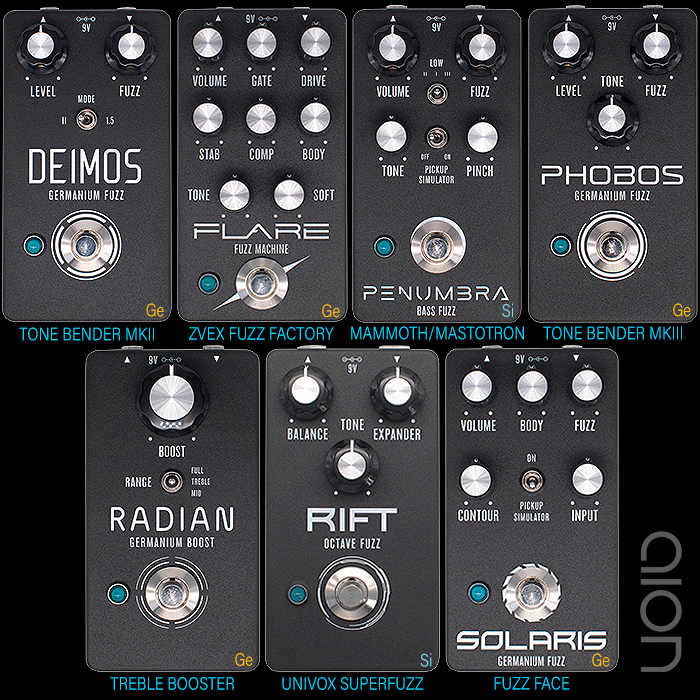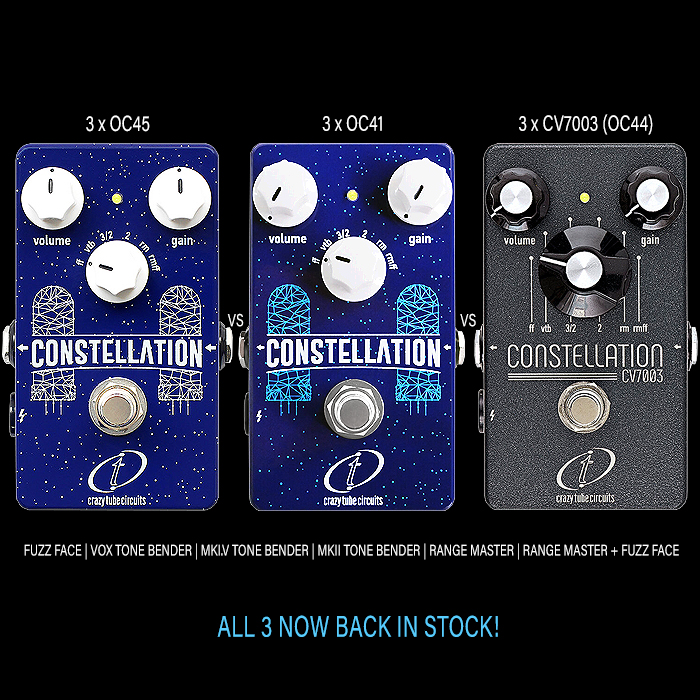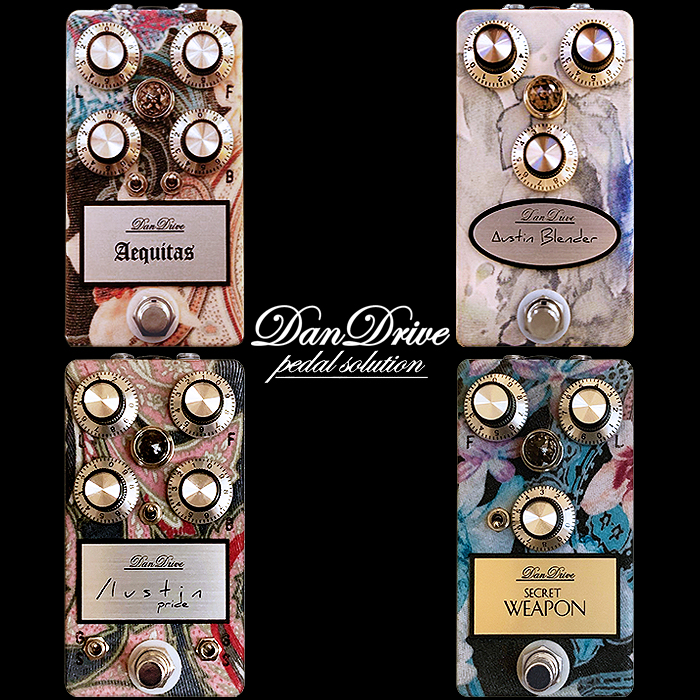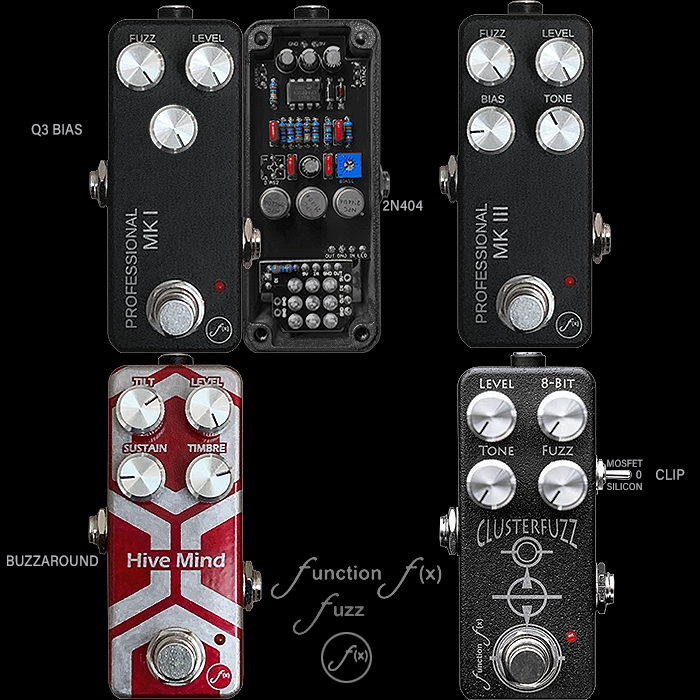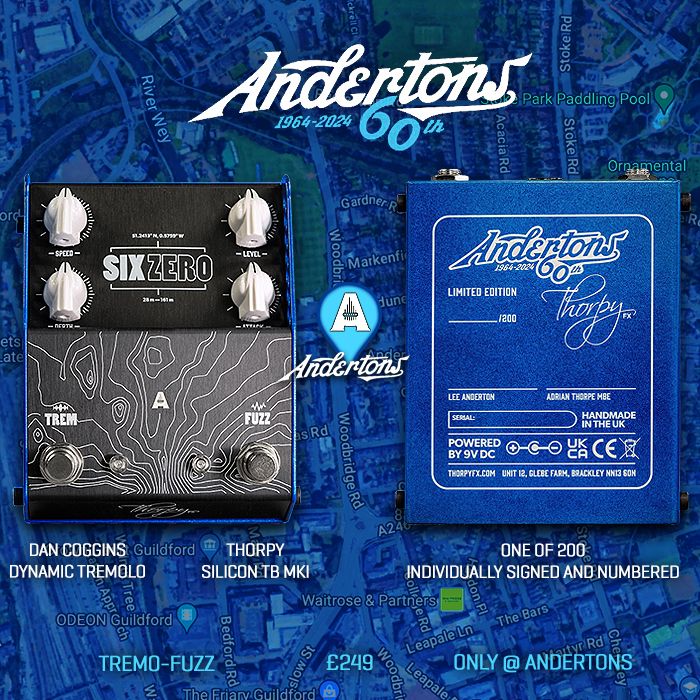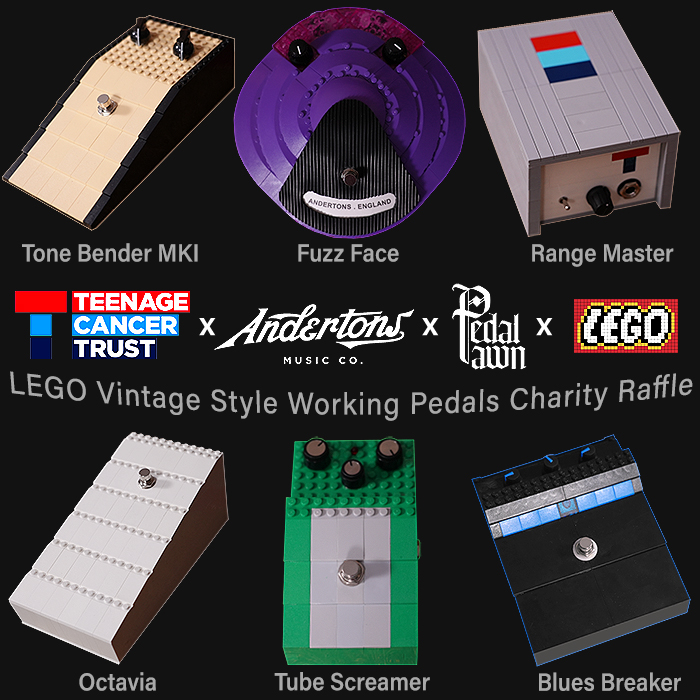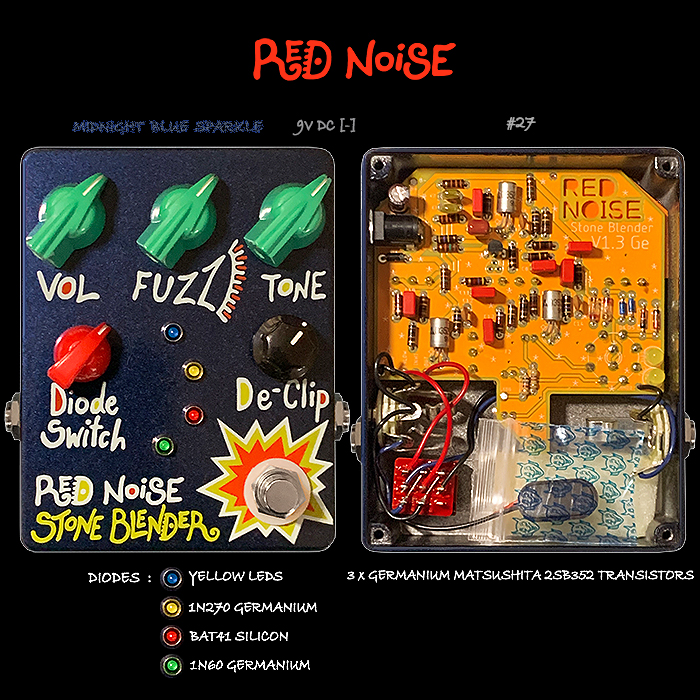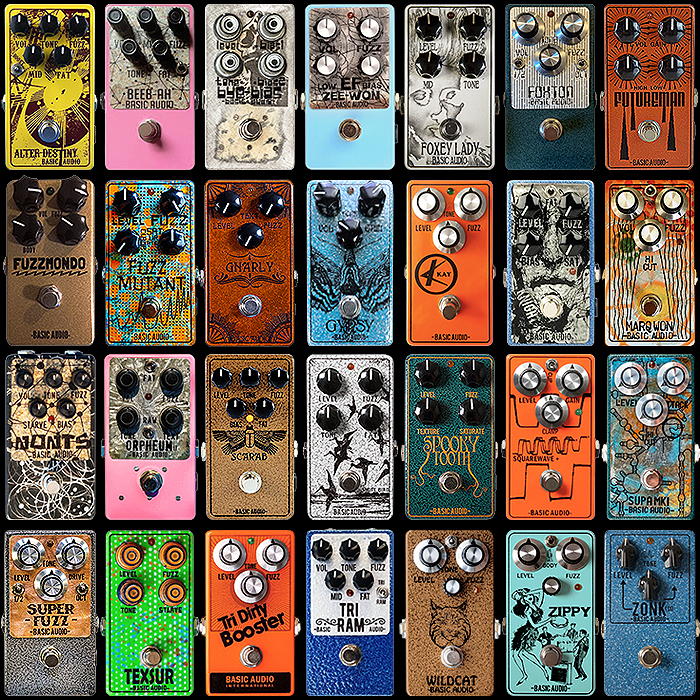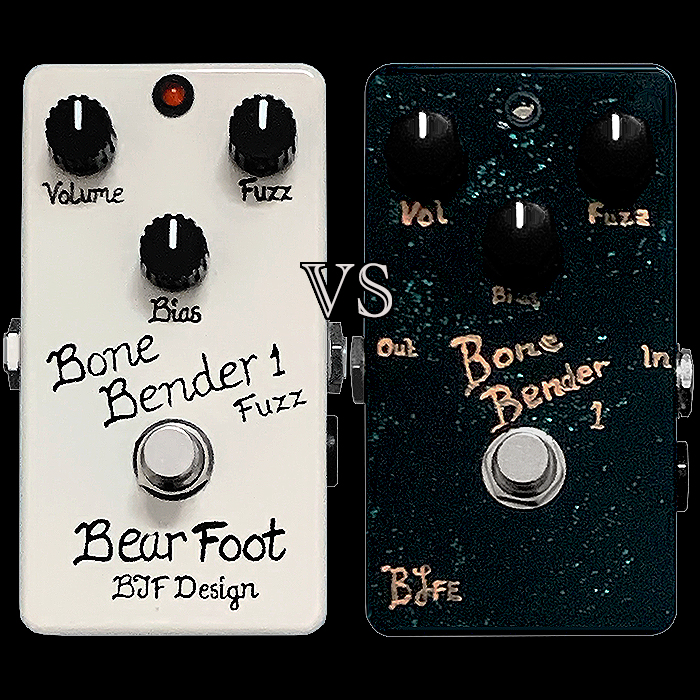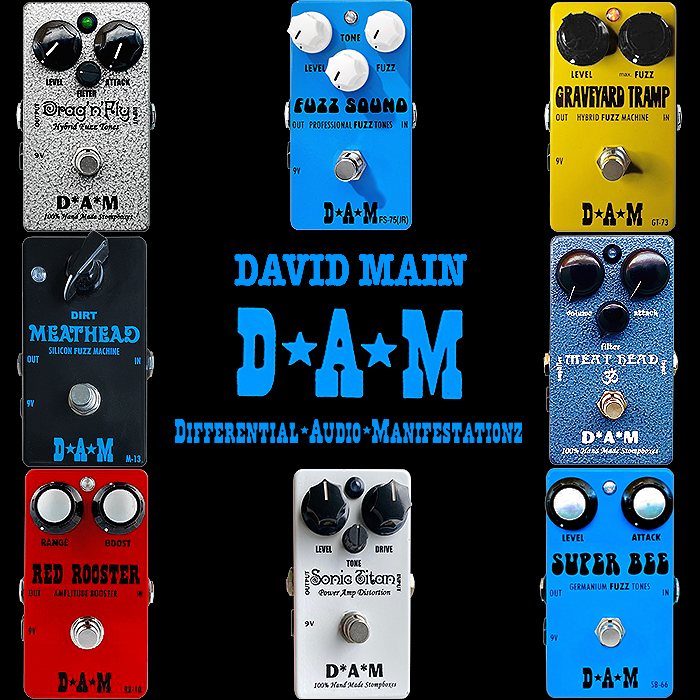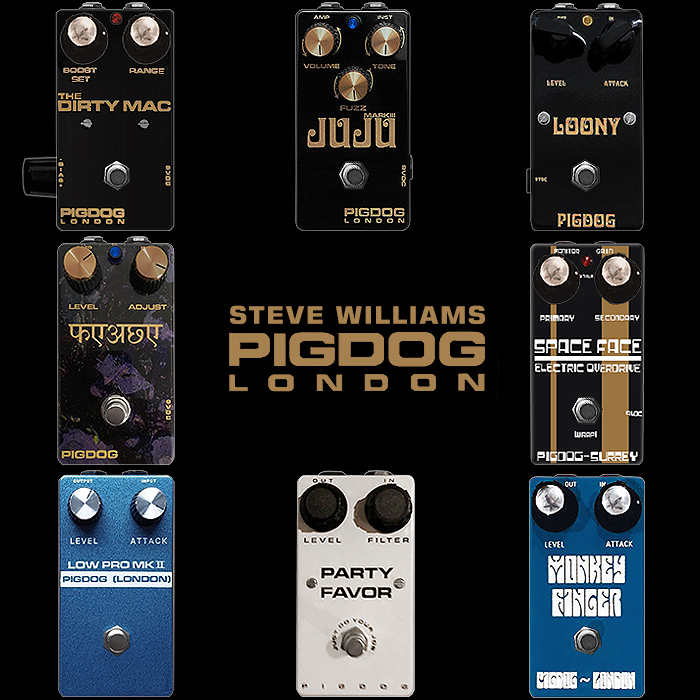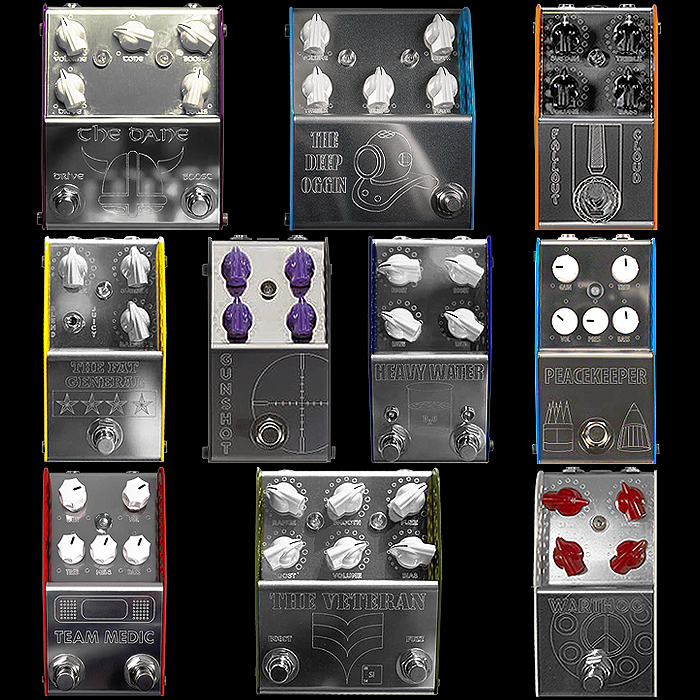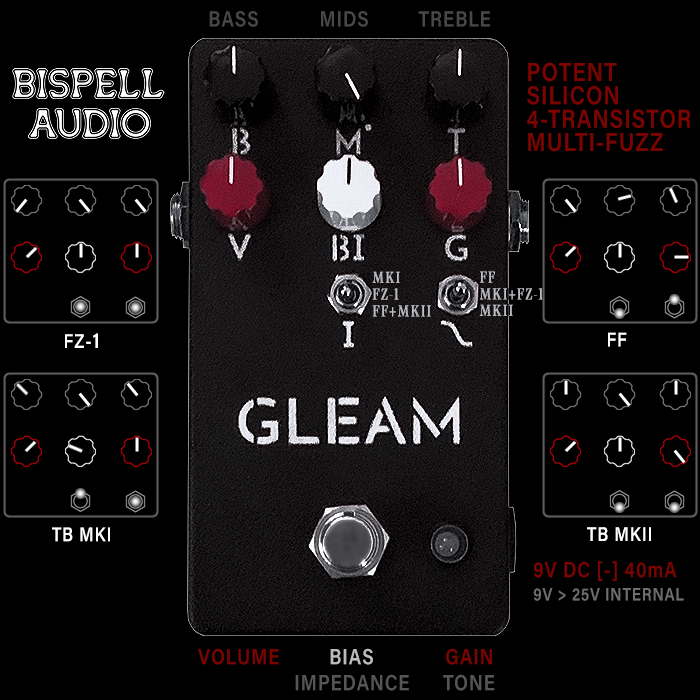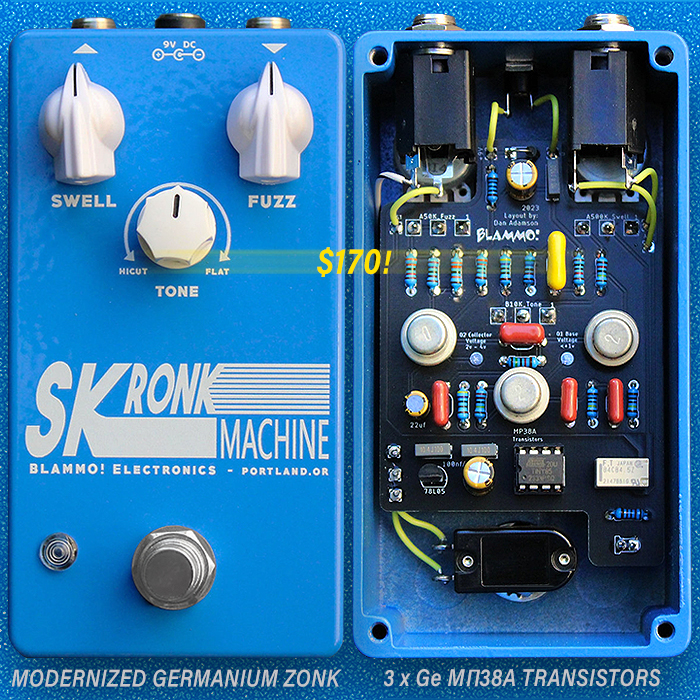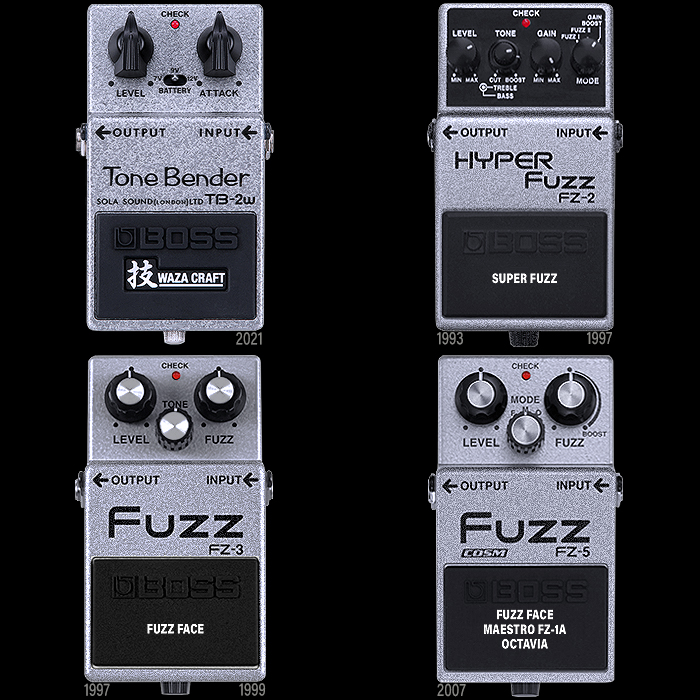ThorpyFX Masters the Germanium Multi-Bender Format with its Superbly Visceral, Versatile and Veritable Fuzz Factory of Tone Benders - The Boneyard Fuzz
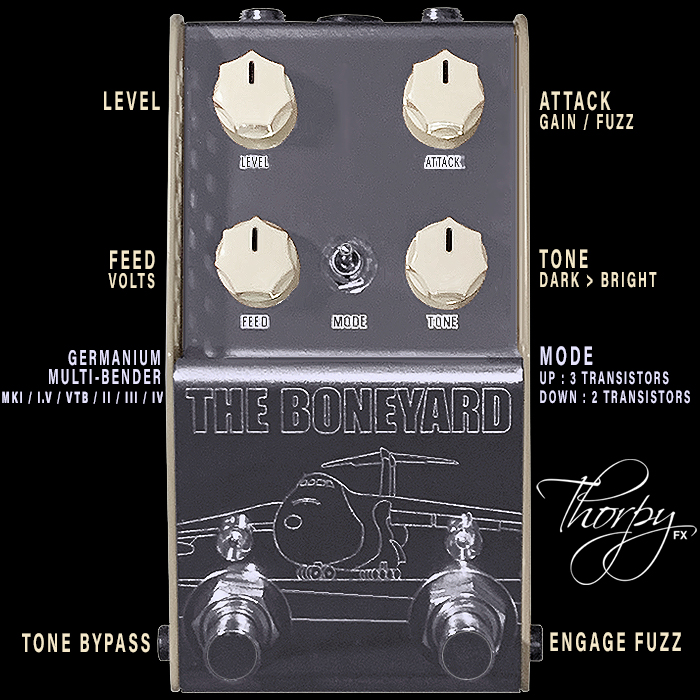
I’ve been dropping subtle hints about this pedal since before Christmas - which though I don’t think anyone properly picked up on! My good friend Adrian has set out on that Holy Grail Mission to build the ultimate ’All Editions in One’ Tone Bender. The fact that he’s managed to achieve it with such relatively few controls and in compact enclosure is nothing short of a marvel / miracle - which has much to do with his specially selected secret sauce Germanium Transistors - which wholly capture those exquisite textures and broader range of applications. As well as of course how finely calibrated each of those 4 key controls are.
All 4 knobs are incredibly interactive - much in the same way as you get with a Zvex Fuzz Factory. There are micro-junctions here of sweet spots at various intersections of those knobs - which deliver astonishing textures and harmonics. This is not at all a pedal for novices though - as you need patience and due diligence to hit the heights that this pedal is so capable of.
There’s a huge range on each of those dials - and much like with a Boss MT-2 - you need to work in micro movements / adjustments and tune by ear - tweaking several knobs in tandem. My below presets need an advisory note too - that all of those settings need to be fine-tuned by ear. With parts variances and depending on the sensitivity of your own rig - those settings are really only the ballparks of where you need to be - as each of those settings will require delicate knob manipulation by ear and by touch - as to when you hit those key sweet spot intersections of perfect tone and texture.
This is essentially the third of my ’Multi-Benders’ - alongside the Menatone Law Bender and Tampco All-Bender. The Germanium Law Bender gets closer than the Silicon All-Bender - where that’s for sure a smart pedal, but doesn’t fully deliver the dry reedy texture of a MKI, or the creamy smooth distortion of the MKIII - it’s I.V and II voicings are pretty excellent though. Adrian and I have always felt that you can’t get those special Tone Bender textures exactly without using Germanium Transistors - and only a very narrow band of those is suitable - meaning that inevitably The Boneyard has to be a limited release - of approximately 250 units.
I’ve had mine for over a month now and I’ve loved it from the start - while I’ve re-calibrated my favourite settings probably a dozen times to reach those final ones that I recommend here.
The 4 knobs are Level, Attack (Gain / Fuzz), Feed (Volts) and Tone (Dark > Bright) and all are incredible interactive - and where different settings of Level deliver entirely different textures - meaning that you typically need to adjust all knobs if you move one! You also have the left-hand footswitch as a Tone-Bypass, and a central toggle which selects 3 Transistors : UP (MK I, MK II, MK III, MK IV) or 2 Transistors : DOWN (MK I.V and VTB).
You then have a couple of variation voicing pairs - where the MK I.V and VTB are almost identical circuits, as are the MKIII and MKIV - and they often involve just a single difference in parts / values. In simple terms through the VTB is a very slightly Brighter voicing than the MK I.V, and the MKIII is Brighter than the MK IV - meaning that’s when the Tone Bypass footswitch comes most naturally into play - as you can tune in both darker flavours with the 3 impacted knobs and then just adjust the Brightness via Tone for the similar categories.
The acid test as always is how Dry and Reedy you can get the MKI to sound - so that it’s fully authentic - and how rich and smooth and creamy you can get the MKIII voicing. Those settings are not necessarily easy to come by - but if you follow my notes you should be able to dial them in fairly reliably and consistently. This is the first Multi-Bender that produces fully convincing MKI and MKIII voicings - the I.V and II varieties are typically much easier to achieve.
The Tone Bypass delivers a slight boost also and sort of invalidates the Guitar Volume Knob cleanup - which is at its strongest on the 2-Transistor varieties, but still works well with the 3-Transistor voicings in tempering the gain and getting it to sound a touch more crisp and focused.
Recommended Presets
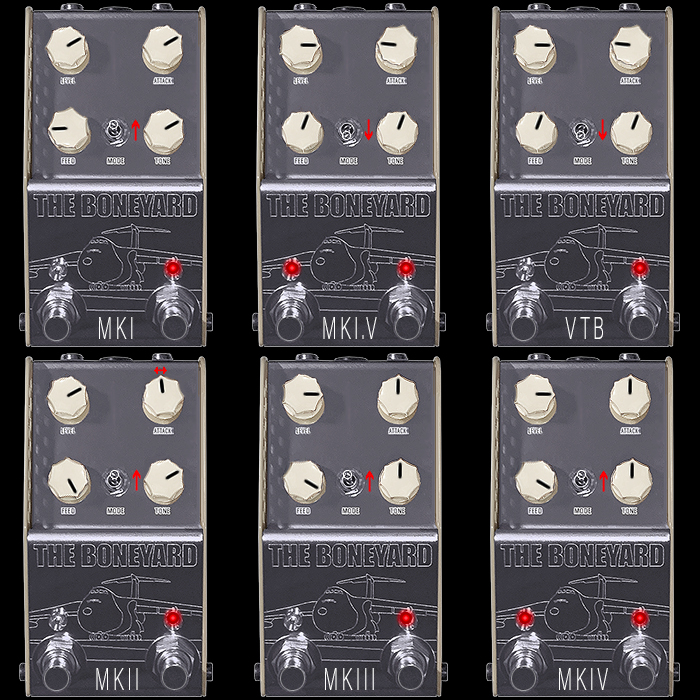
So here are my own preferred settings - which I feel best represent those different categories of Tone Benders - note that you have to tune these by ear once you hit the ballpark - it will be obvious when you move the dial (by tiny fractions) where the character blooms up the best and reacts the best under your fingers. This involves moving multiple dials in tandem as each impacts on character and gain structure! Note also that because of how the Transistor Biasing / Voltage Regulation occurs - you get a tiny lag when moving the FEED knob. I also use my guitar volume cleanup a lot to fine-tune my settings - typically notching the guitar volume back a fraction to temper and tighten up the sound.
MK I Voicing - 3 Transistors
Here both Level and Attack are around 2 o'c, Feed is back at 9 o'c, and Tone should be adjusted by ear - depending on your rig - for me its typically between 1 and 2 o'c. Typically for MK I style voicing you need significant Attack, and Low Feed / Volts!
MK I.V Voicing - 2 Transistors
Here I have Level at circa 3 o'c, Attack at just a fraction above 9 o'c - around 9:15, then Feed at around 1 o'c and Tone Bypass Activated. This is sort of the other side of the coin to the VTB voicing - which has a slightly brighter profile - best / easiest controlled via smart deployment of the Tone Bypass Footswitch!
VTB Voicing - 2 Transistors
To make things easier for MK I.V to VTB and MK III to MK IV voicing transitions - I use the Tone Bypass to render the slightly darker voicing each time - where the dials are otherwise in the same place for those related pairs. So with the VTB voicing being slightly brighter than the I.V - you achieve that by de-activating the Tone Bypass - meaning that more Brightness comes into play from the Tone dial at around 1 o'c. The other 3 core dials are the same as for the MK I.V voicing - which you can clearly see in the visual.
MK II Voicing - 3 Transistors
Here we have Level at 2 o'c, Attack just very slightly before noon - or approximately 11:45 o'c. You need to wiggle that dial slightly to the left of noon until you hit that specific sweet spot which renders just the right sort of texture. Volts control is Maxed, and tone as with the MK I is around 1 to 2 o'c. You should get that lovely saturating 'Whole Lotta Love' sound around about those settings.
MK III Voicing - 3 Transistors
The high water-mark of stand-alone Tone Bender MK III for me is of course my PigDog JuJu - which has the creamiest of sustaining saturation - relatively smooth too. This is another variety which requires very deft fine-tuning to hit exactly the right texture. Level at 3 o'c, Attack at noon, Feed at 4 o'c, and Tone just a touch above noon. Again you need to carefully adjust by ear to get the texture spot on - but it is doable with just a little patience and perseverance. The MK III is slightly Brighter than the MK IV voicing - such that the Tone Bypass comes into play again for the MK IV variant - where the Brigher Tone of the MK III is bypassed.
MK IV Voicing - 3 Transistor
The MK IV voicing has literally and typically just one different capacitor which renders a slightly darker tone than the MK III. So the MK III to MK IV transition can be easily managed via the Tone Bypass Footswitch - where you just need to tune in the Tone to give a touch extra Brightness for the MK III. Much as like with the MK I.V to VTB transition - you just hone the controls until the major distinction is just a touch more brightness. Tone Bypass renders a little bit of a boost too which is fairly accurate also. So both MK I.V and MK IV render slightly darker than their companion circuits.
Final Thoughts

There are lots of different voices to be had here - but each of those does require its own due diligence - and to achieve easy switching between complementary pair types you need to dial things in a little more generously. As is the case with a lot of fuzzes - you need to be guided by your ears and finger-feel to a signifiant degree.
You need to follow my ballparks above and then wiggle each dial appropriately (and in very small movements) until you hit those micro junctions of sweet spots.
As I've noted previously this is very much a Professional level pedal - similar in nature to dialling in a Fuzz Factory - which we know is not for everyone. If you're looking for a slightly simpler way to a Multi-Bender then the Tampco All-Bender is a decent solution - while it doesn't have the full authenticity of tone and texture that this Thorpy Boneyard does.
All of these voicings really do deliver those complex Tone Bender characteristics and artefacts that we Tone Bender fans really love and continuously look out for. Thorpy has found just the right transistors and format to make all this work - while the expansive and visceral nature of the pedal means that you have to show it some significant respect to get the best out of it.
Just as the Fuzz Factory frustrates many players - so will this Fuzz Factory of Tone Benders. For those who show it a little love though - this is all your favourite Tone Benders in the one box! Dedicated fuzz fans are for sure going to love this.
You do need to move quickly as some of the components here are extremely rare and relatively low yield in terms of the absolute right ones fitting the necessary specifications. So there will only be around 250 made - possibly a touch more, but almost certainly less than 300 - while don't quote me on that if Thorpy finds out that he has a few more usable Transistors than he thought he would have. In any case these will be in sort supply and you will undoubtedly need to get your order in rapidly to secure one.
Only relatively few will be made available on the ThorpyFX Webstore - where they are priced at £299 / $349 / €349. Where you're best off hitting up your local Thorpy dealer - as that's where most of these pedals are headed. And should you prefer to read Thorpy's Usage Notes instead of mine - they can be found in the Manuals section of his site.
I know a number of you Tone Bender fans will want one - and I look forward to trading settings and insights with you when you land yours too!
Demos

